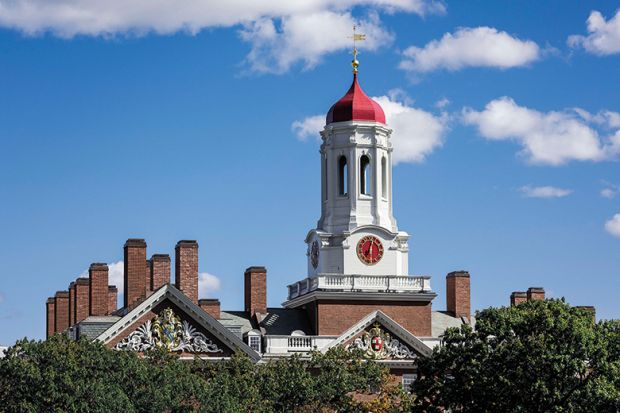Federal prosecutors have begun investigating a possible bribery case involving Harvard University’s fencing coach and the above-market-price sale of his home to a businessman whose sons were admitted to the university.
Prosecutors have assembled a grand jury to hear evidence in the case of the fencing coach, Peter Brand, according to The Boston Globe, which first reported the house sale in April.
Mr Brand and his wife sold their house in the Boston suburb of Needham in May 2016 for $989,500 (£787,000) to Jie “Jack” Zhao, a Maryland businessman, despite the property having an assessed value of just $549,300, the Globe reported. At the time, the newspaper said, Mr Zhao had one son at Harvard and another making plans to apply. The first son graduated in 2018 and the second just finished his sophomore year at Harvard.
The case shares similarities with a broader investigation by federal prosecutors, begun in March, in which dozens of parents are accused of paying bribes that were funnelled to college coaches and others who helped their children gain admission to elite universities. The scam worked on the understanding that universities often defer to sports coaches in admissions cases involving applicants that the coaches deem to be skilled athletes.
Aside from the house sale, Mr Zhao had been a generous supporter of the fencing team, on which both of his sons played. Mr Zhao never lived in the Needham house and sold it 17 months after the purchase for a $324,500 loss, the Globe reported. Mr Zhao has said he acted only out of friendship toward Mr Brand and not as any attempt to influence Harvard’s treatment of his sons.
Harvard has declared that it had not known of the house sale and announced its own internal investigation of the matter, which is still under way, shortly after the Globe reported it.
In the meantime, the university has kept Mr Brand as its fencing coach and said it knows of no other cases of suspected bribery aimed at influencing its admissions processes. After federal prosecutors announced the broader case in March, Harvard’s president, Lawrence Bacow, told the student newspaper that Harvard officials “do some things very differently” than the institutions caught up in the case, including interviewing every athlete before admission.
Claudine Gay, dean of the Faculty of Arts and Sciences, which oversees Harvard’s sports teams, wrote to the university community after the first Globe report in April promising to work “with a sense of urgency” to clarify and strengthen practices as needed.
Register to continue
Why register?
- Registration is free and only takes a moment
- Once registered, you can read 3 articles a month
- Sign up for our newsletter
Subscribe
Or subscribe for unlimited access to:
- Unlimited access to news, views, insights & reviews
- Digital editions
- Digital access to THE’s university and college rankings analysis
Already registered or a current subscriber? Login








